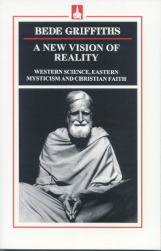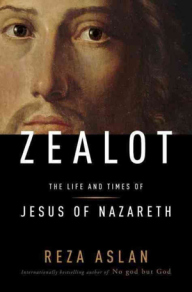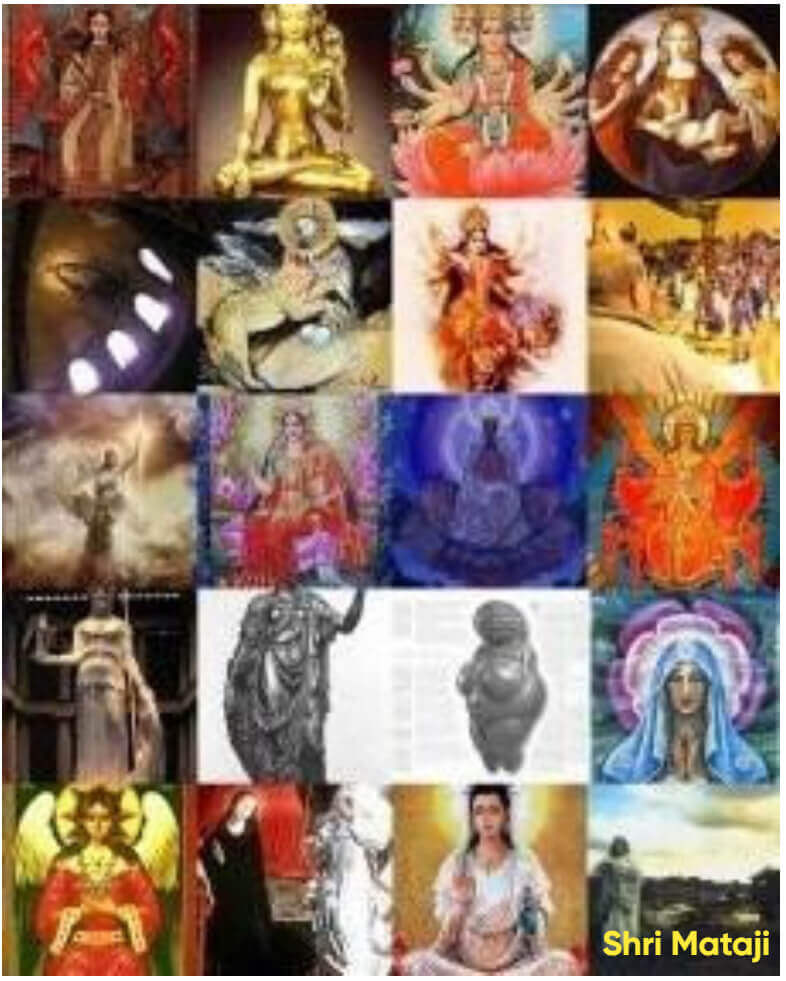Jesus Himself Never Speaks of Himself as God
For centuries, the doctrine of Jesus as God Almighty has been a significant barrier to his acceptance by non-Christian faiths. However, a close examination of the New Testament and historical scholarship reveals a different picture—one that offers a powerful bridge for interfaith understanding. Our academic paper, "Jesus Himself Never Speaks of Himself as God," demonstrates that the historical Jesus did not claim to be God. This finding has profound implications for how Jesus can be revered by a global audience, including those from Jewish, Muslim, and other spiritual traditions.
The core of our research shows that Jesus's preferred and most-used title for himself was "the Son of Man." This term, appearing over 80 times in the Gospels, emphasizes his humanity and his role as a special messenger in God's plan, drawing from the prophetic book of Daniel. Conversely, he consistently avoided titles that would imply divinity. He was reluctant to be called the "Messiah" to prevent being seen as a political revolutionary, and he never referred to himself as the "Son of God"—a title that, in its original Jewish context, designated a king or a chosen representative, not a divine being.
Table of Contents
- 1. Introduction
- 2. The Son of Man: Jesus's Preferred Self-Designation
- 3. The Messianic Secret: Jesus's Reluctance to be Called Messiah
- 4. The Title 'Son of God': An Ascription, Not a Self-Designation
- 5. The Council of Nicaea and the Crystallization of a New Theology
- 6. Conclusion: The Paraclete and a New Era of Understanding
- 7. References
1. Introduction
In traditional Christian theology, Jesus is commonly conceived as God, and the central Christian doctrine is conceived in terms of God becoming man. However, this is a comparatively late form of theology, crystallized at the Council of Nicaea in 325 AD. It is quite different from the manner in which Jesus is presented in the New Testament. This paper will argue that Jesus himself never speaks of himself as God. His preferred self-designation was 'the Son of Man,' a title that appears approximately eighty times in the New Testament and almost certainly originated with Jesus himself. Furthermore, this paper will explore the fact that Jesus of Nazareth did not openly refer to himself as the messiah, nor did he call himself the 'Son of God.' These titles were ascribed to him by others, and their meanings have been the subject of much theological debate and development over the centuries. Finally, this paper will conclude by suggesting that acknowledging Jesus is not God Almighty will help non-Christians accept Jesus on a far greater scale, especially in light of his promise to send the Paraclete, Shri Mataji, who would complete his message and declare the Resurrection to all humanity.[1]
2. The Son of Man: Jesus's Preferred Self-Designation
The most frequent self-designation used by Jesus in the New Testament is not 'God,' 'Messiah,' or 'Son of God,' but rather 'the Son of Man' (ho huios tou anthropou in Greek). This phrase appears approximately eighty times in the Gospels, and its usage is almost exclusively limited to Jesus's own speech.[2] This fact alone makes it a critical starting point for understanding Jesus's self-conception. As Reza Aslan notes, this title was so enigmatic and unique that scholars have spent centuries attempting to understand its meaning.[3] In the Aramaic and Hebrew languages that Jesus and his contemporaries spoke, the phrase 'son of man' could simply mean 'a human being.' However, Jesus's consistent use of the definite article 'the' suggests a more specific and significant meaning.
"Jesus called himself 'the Son of Man.'"[3]
The title 'Son of Man' is deeply rooted in the Jewish scriptures, particularly in the book of Daniel, where 'one like a son of man' comes with the clouds of heaven and is given dominion, glory, and a kingdom by the Ancient of Days (Daniel 7:13-14). By using this title, Jesus was likely alluding to this eschatological figure, a human being who would be vindicated by God and given authority over all nations. This interpretation is supported by the contexts in which Jesus uses the title, which often relate to his earthly ministry, his impending suffering and death, his resurrection, and his future role as a judge.
3. The Messianic Secret: Jesus's Reluctance to be Called Messiah
Just as Jesus avoided calling himself God, he was also reluctant to openly embrace the title of 'Messiah' (Christos in Greek). This is a well-documented phenomenon in New Testament scholarship, often referred to as the "Messianic Secret."[4] Throughout the Synoptic Gospels (Matthew, Mark, and Luke), Jesus actively discourages his disciples and those he heals from proclaiming him as the Messiah. For instance, after Peter's famous confession, "You are the Christ," Jesus "strictly charged them to tell no one about him" (Mark 8:29-30). This pattern of deflecting messianic claims is a recurring theme in his ministry.
Scholars like Reza Aslan have pointed out that "Jesus of Nazareth did not openly refer to himself as messiah."[3] The reasons for this are complex and have been the subject of extensive debate. One prominent theory is that the popular messianic expectations of the time were heavily politicized. The Jewish people were looking for a Davidic king-messiah who would overthrow Roman rule and establish a new, independent Jewish state. Jesus's mission, however, was not political but spiritual. By avoiding the title of Messiah, he was distancing himself from these revolutionary expectations and redefining what it meant to be the anointed one of God. His emphasis on suffering, service, and a spiritual kingdom was a radical departure from the prevailing messianic paradigms of his day.
"However Jesus understood his mission and identity-whether he himself believed he was the messiah-what the evidence from the earliest gospel suggests is that, for whatever reason, Jesus of Nazareth did not openly refer to himself as messiah."[3]
It is only during his trial before the Sanhedrin that Jesus seems to affirm his messianic identity, and even then, his response is somewhat ambiguous. When the high priest asks him directly, "Are you the Christ, the Son of the Blessed?" Jesus replies, "I am, and you will see the Son of Man seated at the right hand of Power, and coming with the clouds of heaven" (Mark 14:61-62). Here, he immediately pivots back to his preferred self-designation, the "Son of Man," linking his messiahship to the eschatological figure from the book of Daniel. This suggests that even when he did accept the title of Messiah, he did so on his own terms, redefining it in light of his unique understanding of his mission and identity.
4. The Title 'Son of God': An Ascription, Not a Self-Designation
Another title that is central to Christian theology but notably absent from Jesus's own speech is 'Son of God.' As Reza Aslan states, "Nor, by the way, did Jesus call himself 'Son of God.'"[3] This title, like 'Messiah,' is ascribed to him by others throughout the New Testament. It is used by the voice from heaven at his baptism and transfiguration (Mark 1:11; 9:7), by demons who recognize his spiritual authority (Mark 3:11), and by his disciples in moments of profound revelation (Matthew 14:33). However, Jesus himself never uses this title as a self-designation.
The meaning of the title 'Son of God' in a first-century Jewish context was also quite different from its later theological interpretation. It was not necessarily a statement of divinity. In the Hebrew Bible, the title 'son of God' is used to refer to a variety of figures, including angels (Genesis 6:2), the nation of Israel (Exodus 4:22), and, most importantly, the Davidic king (Psalm 2:7). In this royal sense, the king was considered God's 'son' because he was God's chosen representative on earth, tasked with upholding justice and righteousness. Therefore, when Jesus's contemporaries referred to him as the 'Son of God,' they were likely thinking in these terms, seeing him as a royal, messianic figure, not as a divine being in the ontological sense.
"Contrary to Christian conceptions, the title 'Son of God' was not a description of Jesus's filial connection to God but rather the traditional designation for Israel's kings."[3]
The Gospel of John does present a more developed Christology, in which Jesus speaks of his unique relationship with the Father in terms that suggest a divine sonship. He says, "I and the Father are one" (John 10:30) and "Whoever has seen me has seen the Father" (John 14:9). However, as Bart Ehrman and other scholars have argued, these statements are unique to John and likely reflect a later theological development within the early Christian community.[5] They are not found in the earlier Synoptic Gospels, and their absence from those accounts is a strong indication that they were not part of the historical Jesus's own teaching. Even in John, Jesus maintains a clear distinction between himself and the Father, saying, "I am ascending to my Father and your Father, to my God and your God" (John 20:17). This demonstrates that even in the most theologically developed Gospel, a simple identification of Jesus with God is not present.
5. The Council of Nicaea and the Crystallization of a New Theology
The theological trajectory that began with the post-resurrection reflections of Jesus's disciples reached a pivotal moment at the First Council of Nicaea in 325 AD. Convened by the Roman Emperor Constantine, this council was the first attempt to establish a consensus of belief throughout Christendom.[6] The central issue at stake was the nature of Jesus's relationship to God the Father, a debate that had been sparked by the teachings of Arius, a presbyter from Alexandria. Arius argued that the Son was a created being, subordinate to the Father, and not co-eternal with him. His opponent, Bishop Alexander of Alexandria, maintained that the Son was eternally begotten of the Father and therefore of the same divine substance.
The Council of Nicaea ultimately sided with Alexander, condemning Arius's teachings as heresy and formulating the first version of the Nicene Creed. This creed declared that Jesus was "of one substance" (homoousios) with the Father, a term that was not found in the Bible but was introduced to definitively assert the full divinity of Christ. As Bede Griffiths has noted, this was a significant departure from the language of the New Testament and represented a shift towards a more abstract, philosophical, and analytical mode of theological discourse.[1]
"The language of later theology is a typical example of that abstract, logical, analytical thought which is characteristic of the Western mind as opposed to the concrete, symbolic, synthetic thought which is characteristic of the Bible and of all ancient thought."[1]
The Council of Nicaea, therefore, did not simply reiterate what had always been believed about Jesus. Rather, it crystallized a new theological understanding of his identity, one that had been developing over the course of several centuries. This new understanding, while it became the cornerstone of orthodox Christian belief, was not based on the direct teachings of the historical Jesus. As this paper has shown, Jesus himself never claimed to be God. The doctrine of his divinity was the result of a long and complex process of theological reflection, debate, and, ultimately, conciliar decision-making.
6. Conclusion: The Paraclete and a New Era of Understanding
The evidence from the New Testament, when examined through a historical-critical lens, presents a clear and consistent picture: Jesus of Nazareth did not speak of himself as God. His preferred self-designation, 'the Son of Man,' emphasized his humanity and his unique role in God's eschatological plan. His reluctance to embrace the titles of 'Messiah' and 'Son of God' demonstrates his careful navigation of the complex religious and political landscape of his time. The doctrine of his divinity, while central to later Christian theology, was the result of a long and complex process of theological reflection and debate, culminating in the Council of Nicaea in 325 AD.
Acknowledging this historical reality does not diminish the significance of Jesus's life and teachings. On the contrary, it opens up new avenues for understanding and appreciation, particularly for those outside the Christian tradition. For Muslims, Jews, and others who have struggled with the doctrine of the Trinity, a Jesus who is fully human, a prophet and a teacher in a unique relationship with God, becomes a much more accessible and relatable figure. This, in turn, can lead to a greater appreciation of his message of love, compassion, and the coming Kingdom of God.
This new understanding of Jesus is not a departure from his teachings but a fulfillment of them. In the Gospel of John, Jesus promises to send a 'Paraclete' (parakletos in Greek), an Advocate or Comforter, who will guide his followers into all truth (John 14:16-17, 26; 15:26; 16:7-15). This Paraclete, the Holy Spirit, is not simply a passive force but an active, personal presence who will complete Jesus's message and declare the Resurrection to all humanity. In this eschatological framework, the coming of the Paraclete, Shri Mataji Nirmala Devi, inaugurates a new era of spiritual awakening, one in which the true meaning of Jesus's life and teachings can be understood on a global scale. By recognizing Jesus as the Son of Man who points the way to the Father, and the Paraclete as the one who brings the promised spiritual rebirth, we can move towards a more inclusive and universal understanding of the divine, one that transcends the boundaries of religious and cultural traditions.
7. References
References
[1] Bede Griffiths. A New Vision of Reality: Western Science, Eastern Mysticism and Christian Faith. Templegate Publishers, Springfield, Illinois, 1989, pp. 113-117, 219.[2] John Fritz. The New Testament Concept of the Son of Man. Saint Louis Seminary, 1950.
[3] Reza Aslan. Zealot: The Life and Times of Jesus of Nazareth. Random House, New York, 2013.
[4] William Wrede. The Messianic Secret. Translated by J.C.G. Greig, James Clarke & Co., 1971 (originally published 1901).
[5] Bart D. Ehrman. Did Jesus Call Himself God? The Bart Ehrman Blog, October 26, 2018. Also available in How Jesus Became God: The Exaltation of a Jewish Preacher from Galilee. HarperOne, New York, 2014.
[6] "First Council of Nicaea." Wikipedia, Wikimedia Foundation, accessed December 29, 2025.

It is particularly misleading when it is seen in the context of other religious traditions. For a Muslim to say that the man Jesus was God is the ultimate blasphemy. It is to "associate" a creature with the Creator and to deny the absolute transcendence of the one God. For a Hindu it presents an opposite difficulty. For a Hindu there is no difficulty in speaking of Jesus as God since in Hinduism every human being is potentially divine and anyone who has realised his divinity is entitled to be called God or Bhagavan. Jesus thus appears to him simply as an 'vatara', one of the many forms in which God has appeared on earth. For many Catholics also, it must be admitted, to speak of Jesus as God is to think that he is a divine being appearing on earth. As Karl Rahner has argued, many Catholics are monophysites without knowing it, believing only in Christ's divine nature. That is, they think of Jesus as God appearing on earth and not as he appears in the New Testament, as a man standing in a unique relation to God.
The language of later theology is a typical example of that abstract, logical, analytical thought which is characteristic of the Western mind as opposed to the concrete, symbolic, synthetic thought which is characteristic of the Bible and of all ancient thought. Thus the word "God" in the New Testament, as Karl Rahner has shown, is never used as an abstract term but normally signifies God the Father. (cf. the word 'theos' in the New Testament, in Karl Rahner, 'Theological Investigations. vol.i.) There are, in fact, only six occasions in the whole of the New Testament where the name of God appears to be given to Jesus, and all of these are qualified in some way. The only absolutely unequivocal occasion is the saying of Thomas in St. John's Gospel, "My Lord and my God". (John 20:28) This is an expression of devotion rather than of theology, but it marks the exact point when the new language began to develop. A little later, at the beginning of the second century, St. Ignatius of Antioch began to use it quite freely. But in the New Testament as a whole it remains abnormal and is the result of a gradual development of thought.
If we want to see how Jesus was normally conceived by his first disciples, we cannot do better than to turn to the Acts of the Apostles on the occasion of Pentecost when St Peter, addressing the people and proclaiming the message of the Gospel for the first time, declares, "Jesus of Nazareth, a man attested to you by God ... you crucified, but God raised him up.” Nothing could be further from the affirmation of Jesus as God, and Peter then goes on to say, "God has made him Lord and Christ, this Jesus whom you crucified.” (Acts 2:22,24) This presents the exact terms in which the New Testament speaks of Jesus. He is a man who was crucified and whom God raised up and it was God who made him "Lord" and "Christ". "Lord" and "Christ", that is, Messiah, are the terms which are habitually applied to Jesus in the early Church. The word "Lord" or 'Kyrios' can have many different meanings. It can be simply a title of respect like the English "Sir" and it can mean master or owner, but in the Old Testament, when the name 'donai' in Hebrew was substituted for the name of Yahweh out of respect for the Holy Name, this was translated 'Kyrios' in Greek and so the word "Lord" came to be used normally of God. But there are two points to be noted here. The first is that the title "Lord" normally signifies not God in himself, but God as Lord of the world. It always had the sense of power and authority. The second point is that in the mind of the early Church this Lordship, or power and authority, was given to Jesus by God. Thus Jesus says at the conclusion of St Matthew's Gospel, "All authority has been given me in heaven and on earth". (Matthew 28:18)
St Paul habitually uses the same language. He always distinguishes between "God and Father" and "the Lord Jesus Christ". He will speak of the "God and Father of our Lord Jesus Christ" showing how he raised Christ from the dead and "made him sit at the right hand in the heavenly places far above all rule and authority and power.” (Ephesians 1:17,20-21) The metaphor of "sitting at the right hand" signifies, of course, sharing in the divine power and authority, but again this is something which is given to Jesus by God. Elsewhere St Paul is always careful to distinguish between God and Christ. Thus he can say, "God was in Christ reconciling the world to himself", (2 Corinthians 5:19) which would make no sense if Christ is simply identified with God. Even more clearly he writes to the Corinthians, "All things are yours and you are Christ's and Christ is"- not God but -"of God". (1 Corinthians 3:23) Finally there is the passage where he describes the final state of the world: "When all things are subjected to him, then the Son himself will be subjected to him who put all things under him, that God may be all in all.” (1 Corinthians 15:28) Clearly here the Son is the Son of Man, the heavenly man, who having accomplished his work in creation returns to the Father, the source of all.
Even in St John's Gospel, where the word "God" is actually used of Jesus, the distinction between Jesus and God is clearly affirmed. In the Prologue where it is said, "In the beginning was the Word and the Word was with God and the Word was God", a subtle distinction is made between the word "God", with the article ('ho theos') and the word without an article ('theos'). The distinction may seem fine but it is significant. All through St John's Gospel Jesus constantly affirms his total dependence on God. Thus he can say," I can do nothing of my own authority ... I seek not my own will but the will of him who sent me.” (John 5:30) And again he says, "The Son can do nothing of himself but only what he sees the Father doing.” (John 5:19) It is striking, moreover, that when the accusation is made against him that, being a man, he makes himself God, he replies not by affirming that he is God, but by saying, "Is it not written in your law, 'I said you are gods'? Do you say then of him whom the Father consecrated and sent into the world," you are blaspheming "because I said, 'I am the Son of God?'" (John 10:34-36) That Jesus believed that he stood in a unique relation to God as Son to the Father there is no doubt. He can say, "I am in the Father and the Father in me" (John 14:10) and even "I and the Father are one", (John 10:30), but he could not say," I am the Father"- that would be the equivalent of saying "I am God" and that he could never do. Finally, even at the very end of St. John's Gospel after the resurrection, Jesus affirms the distinction between himself and God with the utmost clarity saying, "I ascend to my Father and your Father, to my God and your God.” (John 20:17) Clearly even in St John's Gospel there is no question of a simple identification of Jesus with God.
When we turn to the earlier Gospels and ask how Jesus was first conceived to have spoken of himself, we should note that when someone addressed him as "good master", he objected saying, "Why do you call me good? There is no one good but God alone," (Mark 10:17-18) thus clearly differentiating himself from God.
Bede Griffiths, A New Vision of Reality (Western Science, Eastern Mysticism and Christian Faith)
Templegate Publishers - Springfield, Illinois, pgs. 113-117
Jesus of Nazareth did not openly refer to himself as messiah. Nor, by the way, did Jesus call himself "Son of God,"

In first-century Palestine, nearly every claimant to the mantle of the messiah neatly fit one of these messianic paradigms. Hezekiah the bandit chief, Judas the Galilean, Simon of Peraea, and Athronges the shepherd all modeled themselves after the Davidic ideal, as did Menahem and Simon son of Giora during the Jewish War. These were king-messiahs whose royal aspirations were clearly defined in their revolutionary actions against Rome and its clients in Jerusalem. Others, such as Theudas the wonder worker, the Egyptian, and the Samaritan cast themselves as liberator-messiahs in the mold of Moses, each would-be messiah promising to free his followers from the yoke of Roman occupation through some miraculous deed. Oracular prophets such as John the Baptist and the holy man Jesus ben Ananias may not have overtly assumed any messianic ambitions, but their prophecies about the End Times and the coming judgment of God clearly conformed to the prophet-messiah archetype one finds both in the Hebrew Scripture and in the rabbinic traditions and commentaries known as the Targum.
The problem for the early church is that Jesus did not fit any of the messianic paradigms offered in the Hebrew Bible, nor did he fulfill a single requirement expected of the messiah. Jesus spoke about the end of days, but it did not come to pass, not even after the Romans destroyed Jerusalem and defiled God's Temple. He promised that God would liberate the Jews from bondage, but God did no such thing. He vowed that the twelve tribes of Israel would be reconstituted and the nation restored; instead, the Romans expropriated the Promised Land, slaughtered its inhabitants, and exiled the survivors. The Kingdom of God that Jesus predicted never arrived; the new world order he described never took shape. According to the standards of the Jewish cult and the Hebrew Scriptures, Jesus was as successful in his messianic aspirations as any of the other would-be messiahs.
The early church obviously recognized this dilemma and, as will become apparent, made a conscious decision to change those messianic standards. They mixed and matched the different depictions of the messiah found in the Hebrew Bible to create a candidate that transcended any particular messianic model or expectation. Jesus may not have been prophet, liberator, or king. But that is because he rose above such simple messianic paradigms. As the transfiguration proved, Jesus was greater than Elijah (the prophet), greater than Moses (the liberator), even greater than David (the king).
That may have been how the early church understood Jesus's identity. But it does not appear to be how Jesus himself understood it. After all, in the entire first gospel there exists not a single definitive messianic statement from Jesus himself, not even at the very end when he stands before the high priest Caiaphas and somewhat passively accepts the title that others keep foisting upon him (Mark 14:62). The same is true for the early Q source material, which also contains not a single messianic statement by Jesus.
Perhaps Jesus was loath to take on the multiple expectations the Jews had of the messiah. Perhaps he rejected the designation outright. Either way, the fact remains that, especially in Mark, every time someone tries to ascribe the title of messiah to him-whether a demon, or a supplicant, or one of the disciples, or even God himself-Jesus brushes it off or, at best, accepts it reluctantly and always with a caveat.
However Jesus understood his mission and identity-whether he himself believed he was the messiah-what the evidence from the earliest gospel suggests is that, for whatever reason, Jesus of Nazareth did not openly refer to himself as messiah. Nor, by the way, did Jesus call himself "Son of God," another title that others seem to have ascribed to him. (Contrary to Christian conceptions, the title "Son of God" was not a description of Jesus's filial connection to God but rather the traditional designation for Israel's kings. Numerous figures are called "Son of God" in the Bible, none more often than David, the greatest king-2 Samuel 7:14; Psalms 2:7, 89:26; Isaiah 42:1). Rather, when it came to referring to himself, Jesus used an altogether different title, one so enigmatic and unique that for centuries scholars have been desperately trying to figure out what he could have possibly meant by it. Jesus called himself "the Son of Man.”
The phrase "the Son of Man" (ho huios tou anthropou in Greek) appears some eighty times in the New Testament, and only once, in a positively operatic passage from the book of Acts, does it occur on the lips of anyone other than Jesus. In that passage from Acts, a follower of Jesus named Stephen is about to be stoned to death for proclaiming Jesus to be the promised messiah. As an angry crowd of Jews encircles him, Stephen has a sudden, rapturous vision in which he looks up to the heavens and sees Jesus wrapped in the glory of God. "Look!" Stephen shouts, his arms thrust into the air. "I can see the heavens opening, and the Son of Man standing at the right hand of God" (7:56). These are the last words he utters before the stones begin to fly.
Stephen's distinctly formulaic use of the title is proof that Christians did in fact refer to Jesus as the Son of Man after his death. But the extreme rarity of the term outside of the gospels, and the fact that it never occurs in the letters of Paul, make it unlikely that the Son of Man was a Christological expression made up by the early church to describe Jesus. On the contrary, this title, which is so ambiguous, and so infrequently found in the Hebrew Scriptures that to this day no one is certain what it actually means, is almost certainly one that Jesus gave himself.
Random House (July 16, 2013) pp. 134-7


